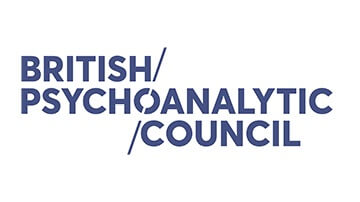
Forensic psychodynamic psychotherapy (D59F)
Train to become a forensic psychodynamic psychotherapist with this British Psychoanalytic Council validated course
This is part two of the British Psychoanalytic Council (BPC) qualifying course in Forensic psychodynamic psychotherapy (D59F). Part one is covered by the Foundations of psychodynamic psychotherapy (D58) or equivalent clinical training.
Please note that we will gradually be phasing out the delivery of this training, as we introduce our new Psychodynamic psychotherapy (M58) course. Read more about this consolidation (FAQs).
The deadline for applications to this course is provisionally set for Sunday 30 June 2024. However, we encourage you to submit your application as soon as possible, as spaces are limited and can be competitive.
About this course
Over the two years of this course you will learn through theoretical seminars, clinical seminars and supervision. You will also be required to undertake supervised psychotherapy treatment at the Portman Clinic.
Theory lectures provided by Portman Clinic staff and a range of visiting lecturers from the forensic field help trainees deepen critical understanding of the forensic psychotherapy literature and tradition. Lectures help conceptualisation of psychopathology, its psychodynamic formulation and assessment, and the clinical management of risk within the ethical frameworks of forensic practice. Attention is given to the psychosocial contexts of forensic populations, including issues of normativity, difference, exclusion and criminalisation, and the dynamics of racial oppression and privilege.
Working psychotherapeutically with forensic patients demands close attention to the organisational context around the patient. In clinical applications seminars you will present material from your workplace. Through this process you will be exposed to the work of colleagues and will be able to develop your understanding of clinical, interpersonal and organisational issues. Concepts developed in theoretical seminars will be identified and elaborated upon within the context of your own and others’ work. The learning is supported by the experience of externally facilitated Reflective practice.
Clinical supervision will provide support for your clinical work and an opportunity to reflect on both the experience of the patient and you as the therapist. It is a BPC requirement that you be in twice-weekly psychoanalytic psychotherapy with a BPC registered practitioner until the completion of the taught course and clinical work.
Particular emphasis will be placed on understanding the emerging manifestations of the transference and counter-transference during the course of the treatment. Termly individual tutorials will offer are a chance to discuss and monitor your progress on the course and to think about future opportunities.
Who is this course for?
This course is for you if you are a professional working in mental health and/or the criminal justice system and are interested in developing your understanding of the application of psychodynamic concepts to a forensic context. You may be a medical practitioner, nurse, psychologist, mental health project worker, probation officer, prison staff, social worker, psychotherapist etc.
You will need to have completed a clinical foundation course in psychodynamic psychotherapy equivalent to D58. You may also be a psychotherapist seeking to develop specific expertise in forensic psychotherapy.
Course details
In order to undertake this course, we ask that you:
- have had at least two years of weekly personal psychotherapy with a BPC accredited psychoanalytic psychotherapist
- have an initial psychodynamic clinical training in psychotherapy, comparable to our Foundations of Psychodynamic Psychotherapy (D58)
- have two years supervised psychotherapy work with a patient
Please note that due to the nature of this course, personal suitability for the work is an important factor.
All students are required to attend twice weekly personal psychotherapy with a BPC-registered psychoanalytic psychotherapist for the duration of their training, until the completion of clinical work.
Home
£6,930 per year (2024/25)
International
£13,860 per year (2024/25)
For more information about financing your studies and your fee status, please see our fees and funding area.
Please note that course fees are subject to an annual uplift of 3% or the Consumer Price Inflation as at 1 September, whichever is the greater. At its discretion, the Trust may determine a figure between these two rates.
We are happy to offer a range of ways to pay your fees, as well as some funding for specific courses.
Assessment
Progress during the course is assessed at the progression board which takes place three times a year. This is guided by feedback through written reports submitted each term by your seminar leaders and supervisors. Subject to satisfactory progress, you will be given permission to take on clinical work (first case, second case etc.) until your progress is finally approved for qualification.
There is no assessed written work during the course but students are required to prepare presentations for clinical applications and theoretical seminars and provide case summaries.
Attendance
Theoretical and clinical applications seminars take place between 10 and 1pm on Monday mornings. Supervision takes place on Monday afternoons, whereas there is flexibility during the week regarding direct clinical work.
Graduates of this course have found the training useful in achieving positions in a wide range of settings. These include secondary mental health/complex needs services, therapeutic communities, personality disorder services, custodial and secure mental health facilities and the voluntary sector. Graduates have also taken roles providing reflective practice to forensic teams. Many have set up a private practice for patients with more generic difficulties, to balance their workload.
Graduates of this course have gone on to pursue further training in areas such as psychoanalytic psychotherapy, psychoanalysis, group analytic therapy, organisational consultancy, couples psychotherapy, and mentalization-based therapy (MBT), as well as in reflective practice and supervision.
Testimonials
Course facilitators
Validations and accreditations
This course is validated by the British Psychoanalytic Council.
Apply now
Start your application for this course.
Recommended courses
Explore courses to study beforehand
-
 Master’s Eligible for Student Visa
Master’s Eligible for Student Visa
Foundations of psychodynamic psychotherapy (D58)
-
 Master’s
Master’s 
Foundations of psychodynamic psychotherapy (BD58, evening)
Explore courses to study next
-
 Clinical qualification
Clinical qualification 
The Tavistock adult psychoanalytic psychotherapy training (M1)



